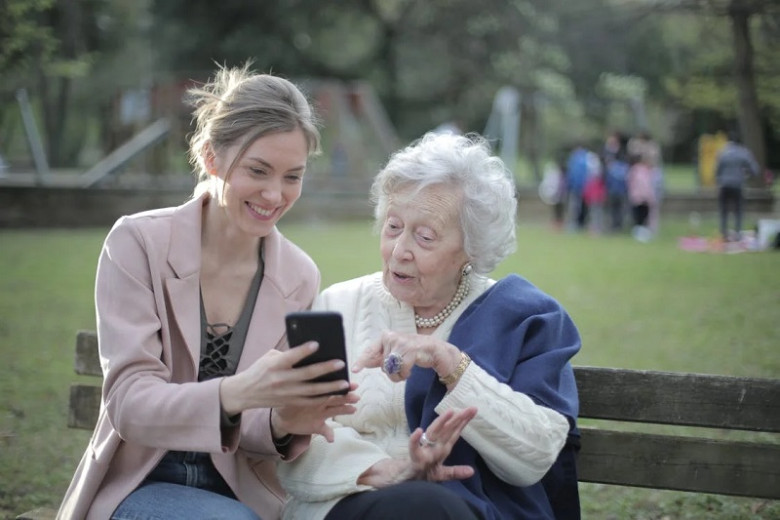When Parents Get Old: A Reflection of Love
The air in the small living room danced with the scent of freshly brewed tea, mingling with the comforting aroma of cinnamon cookies baking in the oven. Helen sat on the faded couch, looking through the stack of old family photographs, each snapshot holding a piece of her family's history. Time had painted her parents’ faces with lines of wisdom, and although the world perceived them as fragile, Helen understood the vibrant spirits that dwelled within their weary bodies.

As she flipped through the photographs, her heart tugged at the snapshots of her parents as young adults—full of life, ambition, and dreams. They had dedicated their lives to raising her, nurturing her with love, and teaching her the essence of kindness. Now, as they approached their twilight years, Helen found herself in a role reversal. It was her turn to care for them.
Every Sunday was dedicated to family gatherings, a tradition Helen kept alive in tribute to the joyous memories of her childhood. She loved these moments, but she also felt a heaviness in her heart. She watched as her father, once a giant of a man, now needed assistance tying his shoes. Her mother, who had once proudly recounted every detail of their adventures, found it increasingly challenging to remember the names of her favorite flowers.
"Let them grow old with the same love that they let you grow," Helen whispered to herself. It was vital to remember the patience her parents had shown her through every tantrum and tear. She recalled moments when, as a child, she stumbled over her words, and instead of correcting her, they smiled, cherishing her innocence.
"Tell me that story again, Mom," she said one afternoon during a warm summer visit.
Her mother chuckled, her voice a soft melody. “Oh, which one? The one where you tried to fly like a bird?”
“Of course!” Helen replied, smiling. It was a cherished tale of childlike enthusiasm and innocent imagination.
Her mother launched into the story, the excitement bubbling in her voice despite the repetition. Helen listened with the same interest her mother had shown her years ago, allowing her mother to bask in a spotlight that never really faded.
“Let them overcome, like they let you win,” her father would often echo when watching Helen navigate minor obstacles in life. He had always cheered her on, a beacon of unwavering support, celebrating her victories, however small.
As Helen visited each week, she made it a point to reminisce not just about her childhood but also about their shared stories. During one visit, her father excitedly invited her to play a game of chess, a game that once made him feel invincible. It was a struggle for him now, his mind occasionally clouded by forgetfulness, frustrating him deeply. But losing that game didn’t feel like a defeat to Helen. Instead, it became a memory—each move a testament to the effort he put forth to remain engaged.
To Helen, it was crucial for them to maintain their friendships. Her mother had started attending a weekly card game with her neighbors, just as she once encouraged Helen to play with her childhood friends. “Let them enjoy their lives,” Helen reminded herself, watching her father join the laughter of his old friends in their weekly meet-ups. It filled her heart with joy to see them content and connected.
“Let them live,” was Helen’s mantra. She understood that this final stretch of life couldn’t simply be about loss; it had to be filled with love, laughter, and a sense of belonging. She filled their home with familiar items—a cozy quilt, their favorite retro coffee table, and family photos that triggered fond memories. She sensed their discomfort when change threatened their comfort zone.
But the most significant lesson Helen learned through this journey was to let them be wrong, too. During a dinner conversation, her father misremembered a friend’s daughter’s name. Instead of correcting him outright, she smiled and casually shared a story that reconnected the dots. It was a small act, but it meant everything. It allowed him to hold onto his pride, just as they had once done for her.
As years slipped by, Helen held a firm grasp on her parents’ hands, just as they held hers when she first learned to walk. The circle of life had come full circle, allowing her to give back the love that had been so selflessly given to her.
In the end, Helen realized that aging didn’t signal the fading of love or memories. Instead, it provided an opportunity to celebrate every laugh, every story, and every cherished look that spoke volumes. The path may become rocky and uncertain, but with patience, understanding, and unwavering love, she would ensure that her parents would never walk it alone.
As she leaned in for a warm hug at the end of another family Sunday, Helen whispered a promise to them: "You’re not alone; we still have so many stories to tell." And in that moment, she knew they were living—truly living—together.













Comments
0 comment